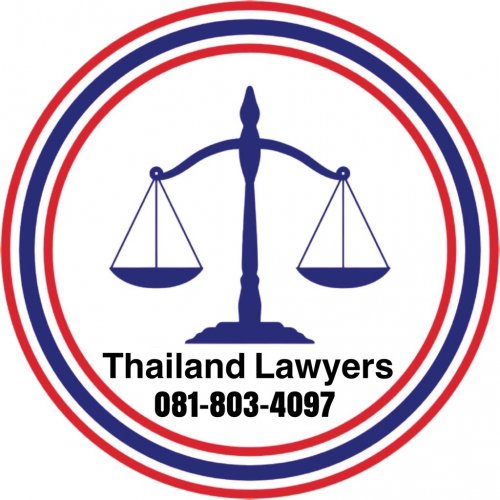Best White Collar Crime Lawyers in Khon Kaen
Share your needs with us, get contacted by law firms.
Free. Takes 2 min.
List of the best lawyers in Khon Kaen, Thailand
About White Collar Crime Law in Khon Kaen, Thailand
White collar crime in Khon Kaen, Thailand, refers to non-violent, financially motivated offenses typically committed by individuals or organizations in business or professional settings. These crimes often include fraud, embezzlement, bribery, money laundering, and insider trading. Due to Khon Kaen's growing economy and development, incidences of white collar crime have seen a noticeable trend, requiring robust legal frameworks and expert legal assistance to navigate.
Why You May Need a Lawyer
Engaging a lawyer is crucial in various white collar crime scenarios. If you are accused of committing a white collar crime, if you believe you are a victim of such crimes, or if you require preventive measures against potential fraud in your business, legal counsel is essential. Lawyers familiar with financial regulations, compliance requirements, and intricate transactions can help resolve allegations, provide defense strategies, or assist in recovery from financial theft.
Local Laws Overview
In Thailand, white collar crime laws are built around the Penal Code, the Anti-Money Laundering Act, and other specific legislation aimed at corporate governance and financial transparency. Key aspects include stringent penalties for fraud and embezzlement, anti-corruption mechanisms, and provisions for international cooperation in financial crime investigations. Understanding these laws within the context of Khon Kaen is vital, given local enforcement strategies and economic factors.
Frequently Asked Questions
What constitutes white collar crime in Khon Kaen?
White collar crime typically involves deceit and breach of trust for financial gain. This includes embezzlement, corporate fraud, bribery, and computer crimes.
How are white collar crimes investigated in Khon Kaen?
Local police and specialized units work together, often in collaboration with national agencies, to investigate and prosecute white collar crimes. They utilize forensic accounting, financial audits, and cooperation with financial institutions.
Can a foreigner be prosecuted for white collar crime in Khon Kaen?
Yes, both locals and foreigners can be prosecuted. The Thai legal system applies equally to all, and international treaties allow for extradition in some cases.
What should I do if I suspect corporate fraud?
It's essential to consult a lawyer who can guide you through collecting evidence, understanding potential legal actions, and liaising with law enforcement.
What penalties are associated with white collar crimes?
Penalties range from fines and restitution to imprisonment, depending on the severity, scale of the crime, and damage incurred.
Can businesses take preventive measures against white collar crime?
Yes, businesses can implement internal controls, undertake regular audits, and provide employee training on ethical standards to minimize risk.
How long do white collar crime investigations typically take?
Duration varies based on the complexity and scale of the crime, ranging from several months to years for particularly intricate cases.
Is mediation or settlement possible in white collar crime cases?
While possible, it largely depends on the specific crime and the parties involved. Legal advice should be sought to explore this option.
Can white collar crimes affect my immigration status?
Yes, conviction for serious crimes can impact visa status or lead to deportation. It's important to seek legal advice immediately if charged.
Are there recent case precedents that impact current law practice?
Legal practice constantly evolves with case law. Consultation with a local lawyer who stays updated with recent case developments will provide the best guidance.
Additional Resources
For those seeking more information, the Anti-Money Laundering Office (AMLO), the Department of Special Investigation (DSI), and the Thai Bar Association offer valuable resources and guidance on white collar crime matters.
Next Steps
If you require legal assistance in white collar crime, consult local legal experts specializing in financial crime. Document any potential evidence, avoid prejudicial admissions, and connect with relevant local authorities to protect your rights. Secure professional advice promptly to ensure your situation is handled with the utmost care and expertise.
Lawzana helps you find the best lawyers and law firms in Khon Kaen through a curated and pre-screened list of qualified legal professionals. Our platform offers rankings and detailed profiles of attorneys and law firms, allowing you to compare based on practice areas, including White Collar Crime, experience, and client feedback.
Each profile includes a description of the firm's areas of practice, client reviews, team members and partners, year of establishment, spoken languages, office locations, contact information, social media presence, and any published articles or resources. Most firms on our platform speak English and are experienced in both local and international legal matters.
Get a quote from top-rated law firms in Khon Kaen, Thailand — quickly, securely, and without unnecessary hassle.
Disclaimer:
The information provided on this page is for general informational purposes only and does not constitute legal advice. While we strive to ensure the accuracy and relevance of the content, legal information may change over time, and interpretations of the law can vary. You should always consult with a qualified legal professional for advice specific to your situation.
We disclaim all liability for actions taken or not taken based on the content of this page. If you believe any information is incorrect or outdated, please contact us, and we will review and update it where appropriate.








